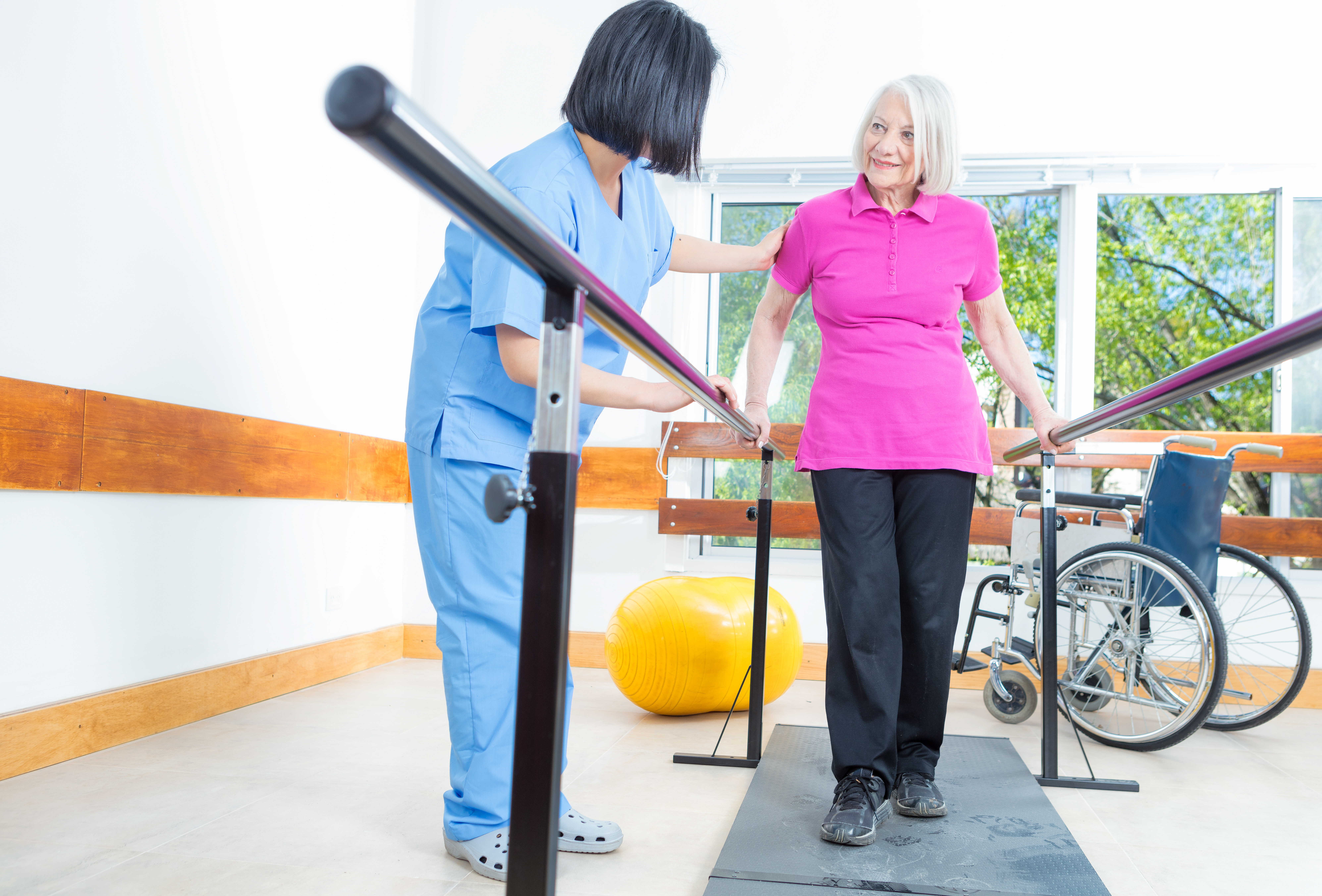Physical Therapy for Stroke Patients
Physical therapy is a form of healing and restorative care that is provided by physical therapists. During the stages of recovery, a patient may receive physical therapy, also known as PT, as a standalone treatment or as part of a recovery plan. The overall goal of physical therapists is to help their patients:
- Improve flexibility and range of motion
- Set short- and long-term recovery goals
- Perform physical therapy treatments
- Teach self-management, including exercises and treatments a person can do on their own
The need for and the benefits of physical therapy will differ between individuals. In most cases, physical therapy is recommended to help people achieve the best possible healing outcomes after a major event. People can receive physical therapy in a therapist’s office, at a hospital or at a senior community or rehabilitation community, like Holly Hill Nursing & Rehabilitation Center. It is common for people to receive PT for things like:
- Pain management to reduce the need for opioids
- Improved movement and mobility
- Fall prevention and improved balance
- Recovery after trauma, injury or surgery
- Management of age-related medical issues
- Recovery from paralysis or stroke
Following a stroke, physical therapy can help with both outcomes and recovery. For caregivers, family members and stroke survivors, it can be beneficial to understand stroke recovery and stroke rehabilitation.
Recovery From a Stroke
While stroke recovery and the timeline for recovery from a stroke look different for everyone, there is a basic timeline that gives stroke survivors and their families some idea of what to expect. Here are some examples:
Day One. People who experience a stroke will likely be hospitalized to determine the type of stroke that occurred and the overall condition of the patient; time in intensive care or an acute care hospital stay may be required. A care team will meet daily to discuss next steps and care options.
First Few Weeks After a Stroke. The average hospital stay following a stroke is six days. Long-term effects of a stroke vary between individuals; however, the hospital team will use this list to examine and evaluate the condition of each person:
- Cognitive symptoms
- Physical symptoms
- Trouble sleeping or heavy fatigue
- Emotional symptoms
First Three Months After a Stroke. This time period is critical in stroke recovery. This is a time when a lot of improvements can happen and when people may enter a rehabilitation community or outpatient therapy sessions.
The goal of stroke rehabilitation is to restore function as close as possible to pre-stroke levels or to develop strategies to compensate for functional changes. Physical therapy can be a cornerstone of a stroke recovery plan.
Physical Therapy for Stroke Patients
The long-term goal of rehabilitation is to help the stroke survivor become as independent as possible. At Holly Hill, this is done in a way that preserves dignity and motivates the person to relearn as many basic skills as possible, such as bathing, eating, dressing and walking. For people recovering from a stroke, physical therapists can help determine which areas of the brain are affected by working with a person to complete various tasks. Physical therapists will also work with stroke survivors to help with problems related to movement and balance, and they are able to teach exercises that strengthen muscles for standing, walking and other daily activities.
At Holly Hill, post-stroke care is fully focused on recovery utilizing our state-of-the-art physical therapy, speech therapy and occupational therapy programs together with a deep commitment to each resident’s personal preferences. To optimize the post-surgery rehab services, our community also offers life enrichment activities and nutritious, delicious meal choices.
About Holly Hill Nursing & Rehabilitation Center
Holly Hill Nursing & Rehabilitation Center provides rehabilitation, memory care, respite services and skilled nursing care designed to support and nurture each resident’s emotional, spiritual, mental and physical wellness. We are committed to creating a unique experience for each resident and supporting their family as they work toward their goals.
Ready to learn more about Holly Hill? Contact us today to schedule a tour and get answers to your questions.

